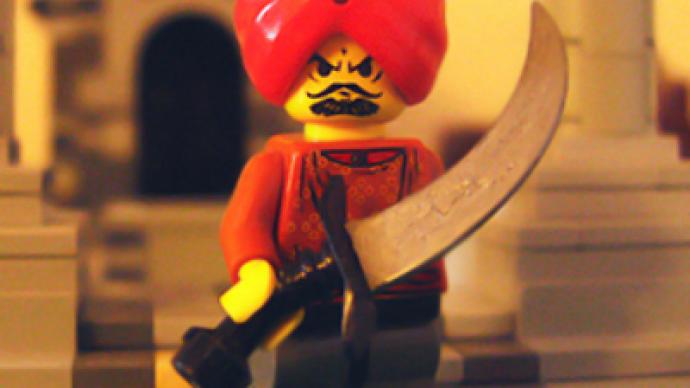Executioner a respected profession in Arab World

In the Arab world, 'Executioner' is a particularly respected occupation, bequeathed from father to son. Representatives of the profession say their goal is to make beheadings as painless as possible for the condemned.
It is not sentiment that makes Saudi executioner Abdallah Ahmad Bakhit Al-Ghamedi prefer to lop off the heads of male offenders rather than females. It is the technical challenge posed by women’s modest attire.
“Because a woman is completely covered – head covering, robe, and gloves included,” he says. “A narrow opening is left at the neck. A skilled executioner goes in with the sword right through this opening. If the sword lands a little lower, it hits the robe. If it lands above, it hits her head covering. This may cause her more pain. I did it three times and it went fine, thank God.”
A man, he explained, is stripped down to his chest.
Al-Ghamedi was participating in a TV debate on Abu Dhabi TV on the death penalty in the Arab world. He and two other executioners agreed that for professionals like themselves, there is nothing traumatic – or even distasteful – in executing those condemned to the sword or noose. However, Arab human rights activists on the program argued that the Muslim world was overdoing it.
“In 2007, Middle East countries executed at least 552 people,” said Lamri Chirouf of Amnesty International. “Of these, 523 were carried out in four countries: Iran, Saudi Arabia, Yemen and Iraq.”
About 50 percent were for drug offenses and the rest for murder. These executions constituted almost half of the approximately 1200 executions carried out in the world that year.
For the executioners themselves, however, their profession is not without compassion.
“If I let myself feel mercy for the person I am executing,” said Saudi executioner Abdallah Al-Bishi, “he will not die at the first stroke. Your hand betrays you. He will suffer.”
Al-Bishi says he sometimes takes his sons with him to work.
“Once I had to chop off the hand of a thief and I took Muhammed with me. After we returned, he went to school and told his friends ‘I saw how the hand of a thief was chopped off.’ The school principal called to thank me for explaining this to my son who in turn explained it to the other students. This way they learned that a thief gets his hand chopped off.”
Al-Bishi said he had several swords, but preferred an Indian sword known as a Jowhar. “You can use it up to ten times in a row and nothing happens to it.”
Al-Ghamedi also prefers swords, but sometimes resorts to a pistol. He did not explain when he does that.
Some 55 countries carry out executions. This includes the U.S. (except for 14 states where they are banned). In Russia there is a moratorium on the death penalty, which expires in 2010, but it could be extended. Researchers say that the most common forms of execution – lethal injections, hanging, electrocution, and gas all risk causing unnecessary pain if they are not properly carried out, which not infrequently happens.
In this context, it can be argued that a swift blow of the sword may indeed be humane if carried out by professionals like Al-Ghamedi or Al-Bishi.
‘I want to hang people like my father’
Egyptian executioner Hussein Urni uses neither swords nor guns. He is a hangman. “I chose this profession because a hangman executes the word of Allah in this world,” he said. “The victim (of the condemned man) cannot exact retribution himself. I believe I will be rewarded in this world and in the world to come because I restore the rights of the oppressed.” Since 1990, he said, he had carried out more than 850 executions.
The head of the Lebanese Association for Human Rights, Nemeh Jourmaa, offered a different view. “An execution is the ending of a life given by Allah, a life that should be taken only by the Creator.”
All three executioners said that after carrying out their duties they resumed their normal lives without a qualm.
“Once the mission is done,” said Al-Bishi, “I come home and play with the children. We have lunch. Everything is normal.” Their job, said the three, brought them popularity, not notoriety. “You’d think that people would think an executioner to be grumpy,” said hangman Urni. “But people come up to me on the street.”
His son, Hussein, said he hoped to follow in his father’s footsteps. “He only hangs people who have done something wrong,” said Hussein. “I want to hang people like he does.”
Abraham Rabinovich for RT












